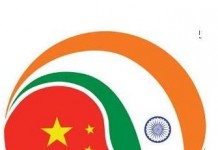https://www.freepressjournal.in/india/policy-watch-here-are-five-reasons-why-indias-qs-scores-should-worry-every-indian
Five reasons why India’s QS Scores should worry every Indian
RN Bhaskar — June 18, 2020
The terrible performance of Indian educational institutions on the QS score ranking (see chart) was to have been expected. And was it just coincidental that the government of India released the NIRF rankings (National Institutional Ranking Framework
Ministry of Human Resource Development, https://www.nirfindia.org/2019/OverallRanking.html) immediately thereafter? It was as if to say that global scores do not matter. India has its own scoring system. Sadly, the writing is on the wall.
But first a bit about QS. QS World University Rankings (https://www.qs.com/rankings/) is an annual compilation of University rankings worldwide by QS Quacquarelli Symonds which is “the world’s leading provider of services, analytics, and insight to the global higher education sector, whose mission is to enable motivated people anywhere in the world to fulfil their potential through educational achievement, international mobility, and career development” (https://www.qs.com/about-us/). The rankings were inaugurated in 2004, and its flagship website www.TopUniversities.com was viewed 149 million times in 2019.
 Create; don’t imitate or denigrate
Create; don’t imitate or denigrate
Look at the chart closely. We have taken the top ten rankings in the world, the top five in India and the top five in China. The first thing that strike the eye is that, in India, all the top five are IITs (or Indian Institutes of Technology). For the rest of the world, the best ranking universities are truly autonomous universities, with no branches or clones in other parts of the world or even within the home country.
And this is the first lesson for India’s administrators. Let every educational institute be totally autonomous, not governed by an IIT council of governors. You do not have an MIT-1, MIT-2, MIT-3. . . Nor do you have Tsinghua University-1, Tsinghua University-2 or Tsinghua University-3.
Excellence does not come from making clones. On the contrary, it drags the best performer down to the lowest common denominator. Today you have over 22 IITs across India, accounting for over 106,276 students, and of which barely 620 are foreign students (https://www.iitsystem.ac.in/?q=studentstatistics/userview&year=2019-2020).
And this is India’s problem. It cannot tolerate excellence. If a school is excellent, it must be replicated, as if to show that excellence can be replicated. But if there is a good Christian school, god forbid. The government engineers protests through a thousand entities calling for such schools to be taken over and their special rights withdrawn. The special rights relate to the minority protection that all minorities enjoy under the Indian Constitution. Fortunately, this is what has kept them good, uncontaminated by the predatory moves of the government.
The ability to keep the government at bay protects non-minority institutions as well. That explains why, in the NIRF rankings, JNU (Jawaharlal Nehru University) has continue to rank #1 (if one keeps aside the IITs — https://www.nirfindia.org/2020/UniversityRanking.html), notwithstanding the government’s attempts to call it a den of terrorists and a breeding ground for anti-nationals.
Teachers matter
Second, excellence comes when the teachers are outstanding and not given employment just because they belong to some reserved category. The government needs to remember, that of the most sacred positions in education, the teacher is the most important. Have a bad teacher, and you will find a hundred students suffering. They will end up either mocking the teacher, or simply boycotting that teacher’s classes. Neither is desirable. As a result, on account of a political move to contaminate even teaching standards, educational standards too get diminished, and the ranking of such institutions begin to tumble.
If you look at the global rankings of the IITs during pre-reservation times and their rankings now, you will notice how terribly they have fallen. As this author has pointed out in the past (http://www.asiaconverge.com/2020/01/pre-budget-series-barbarians-at-the-gates-of-education/), it is sad to see a country insist on selection of the best cricketeers to represent India — without any heed to reservations. Yet it demands that teachers and judiciary be subject to reservation. It is then that you realise that many of India’s legislators have lost their sense of perspective and even their ability to craft good far-sighted legislation.
Third, good education can take place only when there are funds available. The government’s spending on education – especially primary and secondary education — is pathetic (http://www.asiaconverge.com/2020/05/atma-nirbhav-without-education-is-a-joke/).
Fourth, the solution does not lie in shooting the messenger. Remember the OECD-organised PISA scores of 2009? PISA stands for Program for International Student Assessment of 15-year-old students’ performance in reading, mathematics, and science literacy conducted every 3 years by the OECD.
Two of India’s states – Tamil Nadu and Himachal Pradesh – participated in the evaluation exercise. India emerged 72nd from among 74 participating countries (the scores can be found at https://prayatna.typepad.com/education/2012/01/india-in-pisa-2009-results-from-hp-and-tn.html). The Indian government was so incensed, that it withdrew from all PISA evaluations. It was only in January 2019 that India and OECD signed an agreement to participate in the 2021 PISA tests. What happens next year remains to be seen.
Lastly, India cannot be counted among the best in the world unless it learns to focus on three things – health, education and respect for women. Go to China. Despite a worse off ratio of girls to boys, you will not hear a single catcall when a girl walks down a street, even in the middle of the night.
Respect begins with swift penalties for every minor infraction. In the past few years, India has witnessed elected representatives being guilty of paedophilia, rape and abuse. Yet penalties against them – if at all – were pronounced after much delay. Nor has India spent adequately on healthcare or education (http://www.asiaconverge.com/2020/05/atma-nirbhar-bharat-and-healthcare-headed-for-the-icu/).
None of this bodes well for India. The prime minister may talk about atma nirbharta (self-reliance) and dignity. But there can be no dignity without education, health and respect for women.
India’s policies need urgent change.



































COMMENTS